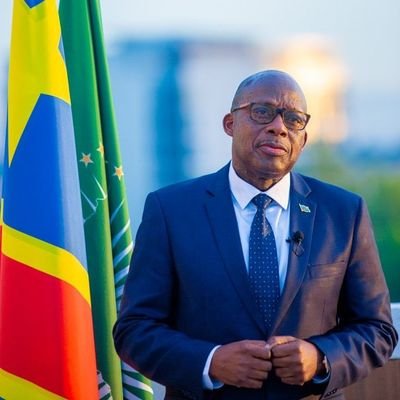
On Wednesday, February 21, 2024, the Democratic Republic of Congo (DRC) government, through a statement signed by Vice Prime Minister and Minister of Foreign Affairs and Francophonie, Christophe Lutundula Apala Pen’Apala, expressed its apprehensions regarding a memorandum of understanding signed between the European Union (EU) and Rwanda. The agreement, which was finalized in Brussels on Tuesday, February 20, 2024, focuses on sustainable value chains for critical and strategic raw materials. Representing the EU was Commissioner for International Partnerships, Jutta Erpilainen, while the Rwandan Foreign Minister, Vincent Biruta, signed on behalf of Rwanda.
While acknowledging the sovereignty of the signing parties, the DRC government criticized the agreement for ostensibly facilitating the plundering of its natural resources by Rwanda, a situation it finds contradictory to the commitments made by the European Union. Specifically, it contradicts the commitments outlined in point 26 of the joint communiqué from the 2nd session of the DRC-EU Political Dialogue held in Kinshasa on October 5-6, 2020. These commitments include leveraging the European regulation on conflict minerals (3Ts and gold) and other relevant provisions, such as those mentioned in the Dodd-Frank Act, to combat the illegal exploitation of minerals originating from the DRC.
The DRC points out that Rwanda’s subsoil lacks the critical and strategic minerals currently sought after globally, such as coltan, cobalt, lithium, niobium, among others. Investigations conducted by the Congolese Parliament, United Nations expert groups, and national and international NGOs have revealed that Rwanda obtains these minerals and other strategic raw materials from the DRC through complex mafia networks and shell companies established by its leaders.
The government argues that forming an agreement with Rwanda to develop “sustainable value chains for critical and strategic raw materials” it does not possess only serves to exacerbate the illicit exploitation of the Congo’s natural wealth. This exploitation contributes to Rwanda’s prosperity, which is significantly based on this criminal activity, and further enables Rwanda to aggress the DRC.
Furthermore, the DRC government views the signing of this protocol, especially following the declaration in Kigali by the President of Poland, an EU member state, to supply Rwanda with weapons “in case of external attack on Kinshasa,” as a profoundly unfriendly act. It undermines the mutual trust between the DRC and the European Union.
Government Spokesperson Patrick Muyaya, in sharing the statement on his X account, criticized the paradox of an institution that promotes and defends human rights yet signs an agreement on sustainable value chains with a country that lacks such resources. He highlighted Rwanda’s record of violating basic human rights and showed concern for the millions of deaths and displaced individuals resulting from nearly 30 years of exploitative practices by Rwanda. Muyaya called for the European Union to clarify its ambiguous stance, emphasizing the EU’s professed commitment to ending the security crisis in Eastern Congo and the illicit exploitation of its natural resources.
The DRC government’s call for clarification and accountability from the European Union underscores the complex dynamics of international relations, raw material exploitation, and the ongoing struggle for human rights and environmental sustainability in the region.






























































